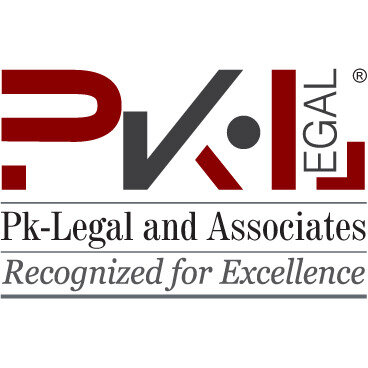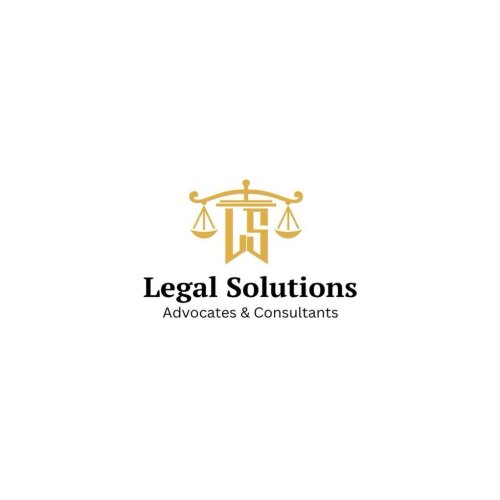Best Mining Law Lawyers in Rawalpindi
Share your needs with us, get contacted by law firms.
Free. Takes 2 min.
List of the best lawyers in Rawalpindi, Pakistan
About Mining Law in Rawalpindi, Pakistan
Mining Law in Rawalpindi, Pakistan, governs the exploration, extraction, management, and regulation of mineral resources within the region. It encompasses a wide range of legal provisions focused on mineral rights acquisition, environmental standards, operational safety, taxation, and land use. These laws are designed not only to promote sectoral growth and attract investment but also to ensure that mining activities are conducted responsibly, balancing economic development with ecological sustainability and the protection of local communities.
Why You May Need a Lawyer
Engaging a qualified mining law lawyer in Rawalpindi can be essential in a variety of situations, including:
- Applying for mining leases, licenses, or permits and ensuring compliance with complex regulatory requirements
- Negotiating joint ventures, partnerships, or contracts related to mineral exploration and extraction
- Resolving disputes over mineral rights, land ownership, or environmental obligations
- Defending against government enforcement actions or penalties for alleged violations
- Guidance on land acquisition, resettlement, or compensation claims involving affected communities
- Assistance with due diligence and risk assessment when investing in mining projects
- Ensuring compliance with tax obligations and export regulations concerning minerals
- Handling injuries, accidents, or occupational safety and health issues in the mining sector
Local Laws Overview
In Rawalpindi, mining activities are primarily governed by federal and provincial legislation. The Regulation of Mines and Oilfields and Mineral Development (Government Control) Act, 1948 and the Pakistan Mineral Rules 2002 are key federal statutes influencing mining operations. Additionally, the Mines Act, 1923 outlines worker safety and operational standards. At the provincial level, the Punjab Mining Concession Rules, 2002, and subsequent amendments are directly applicable in the Rawalpindi District, detailing procedures for grant and renewal of mining licenses, lease terms, royalties, and environmental obligations.
Some important considerations under these local laws include:
- Obtaining the appropriate mining title (prospecting license, exploration license, or mining lease) from the relevant provincial authority
- Compliance with environmental assessment and approvals before commencing operations
- Regular royalty payments, reporting, and record-keeping obligations
- Strict adherence to health and safety standards for mineworkers
- Community consultation and resettlement duties, where applicable
- Penalties and administrative sanctions for non-compliance
Frequently Asked Questions
What minerals are governed by mining laws in Rawalpindi?
Mining laws in Rawalpindi typically apply to metallic and non-metallic minerals, precious stones, coal, limestone, and construction materials such as sand and gravel. Fossil fuels, such as oil and gas, are usually regulated under different statutes.
Which government authority regulates mining in Rawalpindi?
The Mines and Minerals Department of the Government of Punjab oversees the grant and regulation of mining rights in Rawalpindi, while health and safety issues may be supervised by the Chief Inspector of Mines office. Certain minerals fall under federal jurisdiction.
Is an environmental impact assessment required before starting a mining project?
Yes, under the Punjab Environmental Protection Act and related rules, an environmental impact assessment is mandatory for most mining projects to evaluate ecological risks and propose mitigation measures.
How long does it take to obtain a mining license in Rawalpindi?
The timeframe varies depending on the mineral type, location, and completeness of submissions. It can take several weeks to several months, considering application reviews, technical evaluations, and public notifications.
Can foreign entities own mining rights in Rawalpindi?
Foreign companies may invest or participate in mining projects through joint ventures or local subsidiaries, subject to compliance with investment regulations and approvals from relevant government departments.
What are the usual tenure and renewal procedures for mining leases?
Mining lease tenures typically range from five to thirty years, depending on the mineral and project scale. Leases can be renewed subject to compliance with legal and financial obligations, and timely submission of renewal applications.
Are landowners entitled to compensation if mining occurs on their land?
Yes, landowners may be entitled to compensation for surface disturbances, land acquisition, or damage to crops and property. The amount and process are guided by legislation and negotiated agreements.
What are the key compliance obligations for mining companies?
Key obligations include regular payment of royalties, adherence to safety and environmental regulations, accurate mining records, worker welfare, and submission of periodic operational reports to authorities.
How are disputes about mining rights resolved?
Disputes may be resolved through administrative channels, arbitration, or litigation in courts, depending on the issue's nature and contractual arrangements. Many mining contracts specify dispute resolution mechanisms.
What penalties apply for illegal mining or regulatory violations?
Penalties may include fines, forfeiture of mining rights, compensation for damages, and even criminal charges in severe cases. Authorities may also order the suspension or closure of operations until compliance is achieved.
Additional Resources
Individuals or entities seeking more information or assistance with mining law issues in Rawalpindi can contact the following resources:
- Mines and Minerals Department - Government of Punjab
- Punjab Environmental Protection Agency (EPA)
- Chief Inspector of Mines, Punjab
- Pakistan Mining Engineers Association
- Local Bar Associations or specialized mining law consultants
- Pakistan Mineral Development Corporation (PMDC) for federal-level matters
Next Steps
If you need legal assistance with mining law in Rawalpindi, start by gathering relevant documents such as land ownership records, mining license details, contract copies, and correspondence with government departments. Consider the following steps:
- Consult with a lawyer or firm specializing in mining or natural resources law for an initial assessment of your situation
- Contact the Mines and Minerals Department for procedural guidance or clarification on licensing and compliance requirements
- Arrange a consultation to discuss your legal rights, obligations, potential risks, and available remedies
- If involved in a dispute, gather evidence and any prior agreements to facilitate efficient legal representation
Lawzana helps you find the best lawyers and law firms in Rawalpindi through a curated and pre-screened list of qualified legal professionals. Our platform offers rankings and detailed profiles of attorneys and law firms, allowing you to compare based on practice areas, including Mining Law, experience, and client feedback.
Each profile includes a description of the firm's areas of practice, client reviews, team members and partners, year of establishment, spoken languages, office locations, contact information, social media presence, and any published articles or resources. Most firms on our platform speak English and are experienced in both local and international legal matters.
Get a quote from top-rated law firms in Rawalpindi, Pakistan — quickly, securely, and without unnecessary hassle.
Disclaimer:
The information provided on this page is for general informational purposes only and does not constitute legal advice. While we strive to ensure the accuracy and relevance of the content, legal information may change over time, and interpretations of the law can vary. You should always consult with a qualified legal professional for advice specific to your situation.
We disclaim all liability for actions taken or not taken based on the content of this page. If you believe any information is incorrect or outdated, please contact us, and we will review and update it where appropriate.












